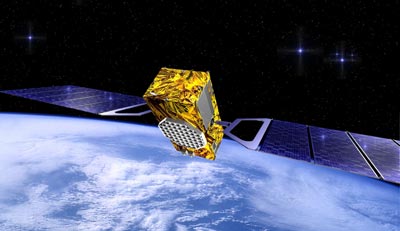Galileo gets a Chinese overlayby Taylor Dinerman
|
| For Europe, Galileo may yet turn into a technological triumph, but the odds are getting longer. |
For the Chinese the goals were simple: launch as may Galileo satellites on their Long March boosters as possible and, above all, gain technological and scientific insight into what it takes to build an independent, up-to-date, space-based positioning, navigation, timing system. The Beidou system that they now have is clumsy and, while it may have a role in guiding long-range missiles, it lacks the multipurpose military utility of GPS, Russia’s GLONASS, or, perhaps eventually, Galileo. Now that the Europeans have decided that China cannot be promoted to full membership in their program, China has no good reason to continue to accept a minor role.
For Europe, the question is how will they react to China’s latest move. Can they put pressure on China the same way the US did to them over their overlay ploy? They do not have a formal military alliance with China, and their commercial clout is limited. They would find it difficult to offer to lift the post-Tiananmen ban on sales of military equipment in spite of the decision a few years ago to “in principal” resume arms sales. In theory they could threaten to sell weapons to Taiwan. Taipei would certainly be happy to buy more submarines from Germany, France, or Sweden. If the Europeans can credibly threaten this, it may be the only card they really have.
The deal the Chinese have apparently signed with a Swiss company to buy hydrogen maser atomic clocks for their new Compass system is not something that the European Union has a lot of control over. In spite of the fact that such devices are, in effect, guidance systems for long-range nuclear missiles, they do no appear on any international list of military or dual-use items. This loophole is another example of just how weak the Wassenaar Ageement on arms and technology exports really is. The old Cocom had real teeth and could be fairly easily modified to incorporate new items. Today, those who want to reform the US ITAR (International Trade in Arms Regulations) will once again find it more difficult to argue their case because of such sales. Over the long term such transactions do more to weaken the position of the World Trade Organization and other multinational institutions. Inside the US there is a growing feeling that since these types of institutions and agreements serve only to make the world a more dangerous and deadly place, they should be scrapped.
For Europe, Galileo may yet turn into a technological triumph, but the odds are getting longer. The Chinese may use the frequency overlay issue to gain leverage over EU policy worldwide. The Europeans may find that China’s supposed rise to great power status is coming at their expense as well as that of the US.
